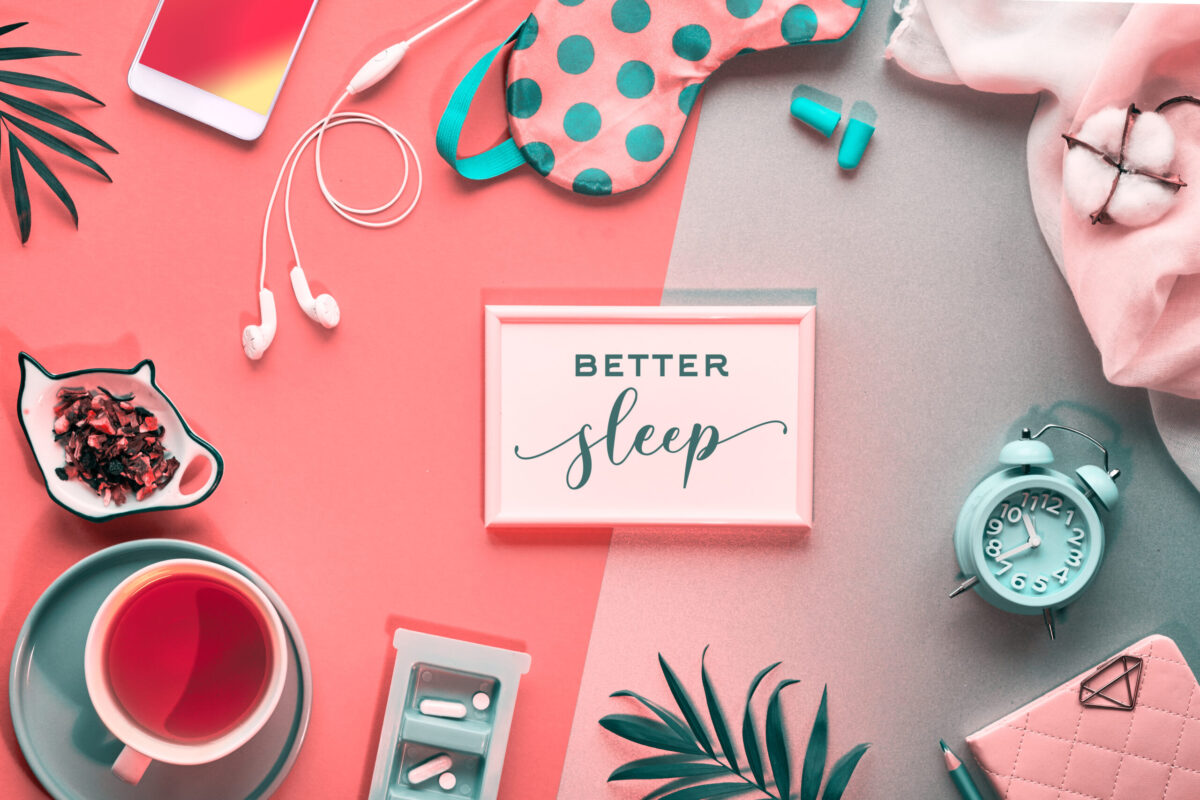When it comes to sleep aids, natural options sound like a good idea. But how scientifically sound are they? And what are the risks of trying them?
WellTuned spoke with Dr. Judith Overton, medical director for BlueCross BlueShield of Tennessee, to learn more.
What are natural sleep aids?
“Most natural sleep aids are derived from plants or herbs,” says Dr. Overton. “People tend to think that if it comes from a plant and it’s over-the-counter, you can assume it’s safe. But there’s a wide variation in the amount of active ingredients across supplements, and there are risks for some people.”
What are the risks of using natural sleep aids?
Research on natural sleep aids is a relatively new field, so long-term effects are still unknown. Furthermore, since these products are not subject to FDA oversight, they aren’t monitored for safety, quality, effectiveness or truth in marketing. That doesn’t mean all natural sleep aids are bad or ineffective; It just means it’s up to the consumer to do their research.
Who should be cautious when it comes to natural sleep aids?
Everyone should talk with a healthcare provider or pharmacist before trying natural sleep aids, but certain groups need to be especially cautious, including:
- Women who are pregnant or are trying to become pregnant
- Adolescents, whose reproductive, cardiovascular, immune and metabolic systems are still developing, and
- Anyone currently taking other medications, especially blood thinners and antidepressants.
“When mixed with other drugs or in high doses, natural sleep aids can cause changes in body temperature or even your hormones,” says Dr. Overton. “Also, make note of whether you’re using something every once in a while or every night. Chronic use is often a sign of a larger sleep problem.”
What are the benefits of natural sleep aids?
“Tired people are more likely to make careless mistakes, and chronic sleep deprivation can be dangerous,” says Dr. Overton. “For example, sleeplessness has been shown to increase a person’s risk of car wrecks. So anything that promotes healthy sleep is good.”
“But the first step when addressing sleep issues should always be to talk with your doctor as they may be related to other underlying medical problems. Depression, anxiety, life stress — all of these can cause sleep problems. But with certain lifestyle changes — decreasing screen time at night, regulating caffeine intake, improving sleep hygiene — you might not need supplements or medication.”
5 common natural sleep aids
If you are curious about natural sleep aids, here are 5 of the most common, along with their benefits and risks.
Melatonin
Melatonin is a hormone produced in the brain that regulates your body’s circadian rhythms. Natural levels are highest prior to bedtime, which is why taking extra helps some people fall asleep. However, melatonin may cause daytime drowsiness or worsen depression. Some users also find that it helps them fall asleep quickly but doesn’t ensure they’ll stay asleep.
Chamomile
Chamomile is a centuries-old herbal remedy that’s used for its calming and relaxing properties. The herb also has anti-inflammatory and anti-bacterial properties, however it can cause a drug interaction for people on blood thinners.
Valerian
Valerian is an herbal extract used to manage anxiety and insomnia. While experts say much more research on its effectiveness is needed, valerian does help some people fall asleep, may improve sleep quality and typically doesn’t cause grogginess. However, valerian can be dangerous when mixed with other prescription medicines or alcohol.
Kava
Kava is an herbal remedy that some people have used for stress relief and insomnia; however, it is now considered unsafe as it may cause cirrhosis, hepatitis or liver failure.
L-Theanine
This amino acid is found in green and black tea and may contribute to longer, deeper sleep. L-theanine is linked to an increase in serotonin and dopamine, both of which can contribute to healthy sleep. Currently, no negative side effects are associated with L-Theanine, so it may be a good supplement to ask your healthcare provider about first.
For more information on how to get good sleep, click here.
Get more information about specific health terms, topics and conditions to better manage your health on bcbst.com. BlueCross BlueShield of Tennessee members can access wellness-related discounts on fitness products, gym memberships, healthy eating and more through Blue365®. BCBST members can also find tools and resources to help improve health and well-being by logging into BlueAccess and going to the Managing Your Health tab.


